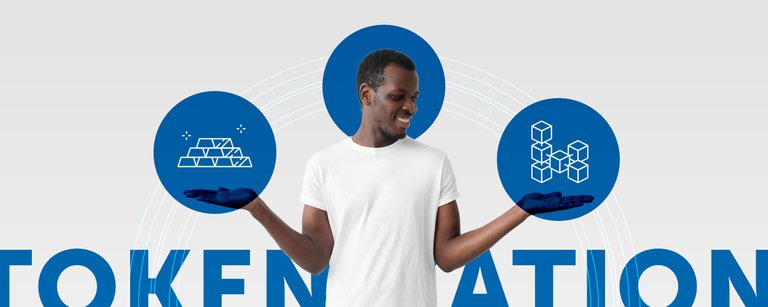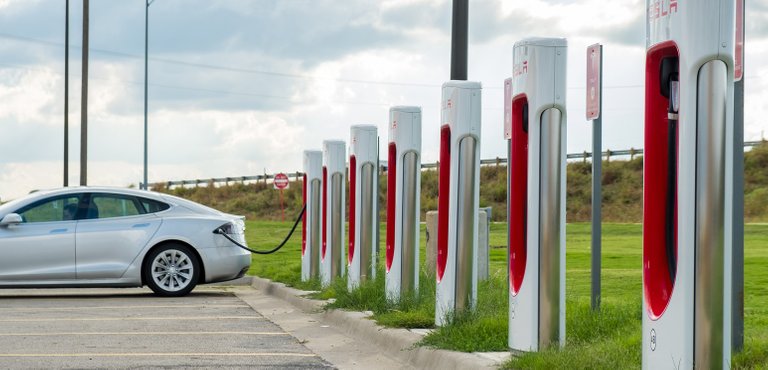It is obvious the present system is not working for most people. This is a conclusion that is fairly easy to come to regardless of what metrics are being used. At the top of the list, at least being discussed, is the wealth and income inequality.
Essentially, the system rewards a small minority while the rest are left falling further behind.
Most people like being part of something that grows. We like to see things develop and be included in larger success. In our world today, one where monetization is still part of the process, this includes financial.
Unfortunately, those that are able to benefit from the growth and progress of our institutions is relatively small. Most are on the outside looking in.

Tokenization offers a way around that. Many now are talking about corporations being concerned about more than just shareholders. As an alternative, there is a push for executives to focus upon all stakeholders.
Sadly, this is just lip service. Until the entire corporate structure is altered, shareholders are going to be the sole concern of corporation executives. This is who they work for and, for all the nice talk, at the end of the day, shareholders are concerned about an ROI. Fund managers can talk about "conscious" investing all they want. If those decisions start to under perform and people remove their money in droves, the investing approach will quickly revert back.
There is, however, another option. Tokenization offers an alternative that can exist within the present system while the gradual change is made. It is likely to take decades before we move beyond the present mindset, thus we need to see another way to operate.
Yesterday, there was an excellent article that discussed this very concept. Amazon Prime is a very successful program for customers of that company. This made the shareholders a lot of money. Over the years, the service expanded which is a benefit to the users. However, the only ones to financially gain are the shareholders.

While most shareholders likely have an Amazon Prime account, the vast majority of Prime members are not shareholders. This is where we come upon the same dilemma. Those who bought Amazon stock 10 or 20 years ago have made out well financially. Unfortunately, those who started using Prime at the beginning are no further ahead of someone signing up today.
This is all removed if the Amazon Prime program was tokenized. With tokenization, it is possible for early adopters to gain significantly. Thus, if one got involved in the early days, when Amazon was not much more than a bookstore, he or she will be better situated as compared to someone who just joined last week. The point is that as Amazon expanded the service to include more products, free overnight shipping (same day in some cases) as well as video and audio, the value of the offering increased. This is something that the Prime members would be able to realize financially.
https://www.coindesk.com/amazon-prime-membership-should-have-been-a-tokenized-asset
Obviously, it not convey ownership. This would still be relegated to the stock. That is what entitles one to a percentage of the company's future earnings. A token would simply be another asset class that is tied to the value of the Prime membership program. Being freely traded, the odds are that, as the service becomes more valuable, the token price would also rise.
Thus, there would be two groups who benefit, financially, from Amazon's success. Under this scenario, we would see the stakeholders rewarded growing just past those who are holding stock.
Now let us consider this concept and what other companies it could be applied to. Anything with a consistent user base could be eligible for tokenization. When people make purchases, a token can be distributed. Over time, as the value of that company's products or services grows, those who were amassing the tokens are in a strong position.

Let us consider electric charging stations. Right now, this is a rather novel industry. The percentage of people using electric vehicles is rather small. Thus, they are the forerunners of the paradigm shift most expect in vehicle transportation.
With such a low penetration rate for the vehicles. we can imagine the charging station industry is even smaller. Nevertheless, over time, we are seeing more being build and utilized.
Here we can easily see the tokenization process in action. The companies that own the charging stations could offer a token to customers each time they use the charging station. Early adopters would be amassing tokens at a greater pace than those who come onboard at a later date. Of course, the intent is the value of the token would grow as more charging stations are built out and the user base grows. Just like with Amazon Prime, as the total offering expands, the token holders benefit.
Tesla is one of the leading companies in this arena. It would be very easy for this company to offer a token for this specific purpose. In fact, it could offer a different token for each facet of the business. For those who provide autonomous driving data, they receive a token. When using a charging station, an alternate token is offered. Those who utilize the energy storage or, in the future, the robotaxi application, receive other ones. In the end, all can be swapped for company products or services.
As we can imagine, this could apply to most all aspects of our lives. People could receive tokens for gym memberships, using an investment application, flying on an airline, staying at hotels, shopping at particular stores, or eating at certain restaurants.
If Netflix wants someone to watch their programming over Disney+, then tokenize and reward the users. Consider if this program was in place for Netflix users since 2013. Not only would the stock be up nicely due to the rise of the company but the tokens would likely be worth a lot more.
The knock on cryptocurrency is that real world applications are lacking. The only reason this is the case is because the existing entities do not implement programs using cryptocurrencies. Instead, we are at the point where building out an alternate system is required. The move towards Web 3.0 is taking place.
The only question is which companies are going to be able to enter that realm?
Tokenization is going to change a lot of aspects of society. It might not resolve all our problems but it certainly can address the financial inequality, at least to a great degree.
If you found this article informative, please give an upvote and rehive.

gif by @doze

Posted Using LeoFinance
interesting view, we have to go through first phase of tokenization, still early adoption
Your current Rank (37) in the battle Arena of Holybread has granted you an Upvote of 21%
The Gov probably doesn't intend to do exactly that. However, by venturing into CBDCs, they will be doing something almost like a Fed token. There's nothing crypto about CBDCs. However, it would be interesting to have a token for government services.
Thinking out loud, things like toll roads, benefits, government employee salaries, taxes, application fees, national park fees, licenses, etc. . ., could all be done with government tokens, which one can buy from an exchange or trade with somebody who gets paid in Fed tokens. This would work for day to day business, I think.
I'm not sure how it would work for large capital projects like building highways and other infrastructure. They would need some way to burn tokens to prevent inflation. It's too much to ask for government to not overspend, so they'll need some means to collect back tokens for destruction.
Posted Using LeoFinance
Those companies can do a lot of things and create additional value by tokenization. It can benefit the customers, stockholders, employees, suppliers, and all people involved in the business. We will see the change sooner or later in the future.
Posted Using LeoFinance